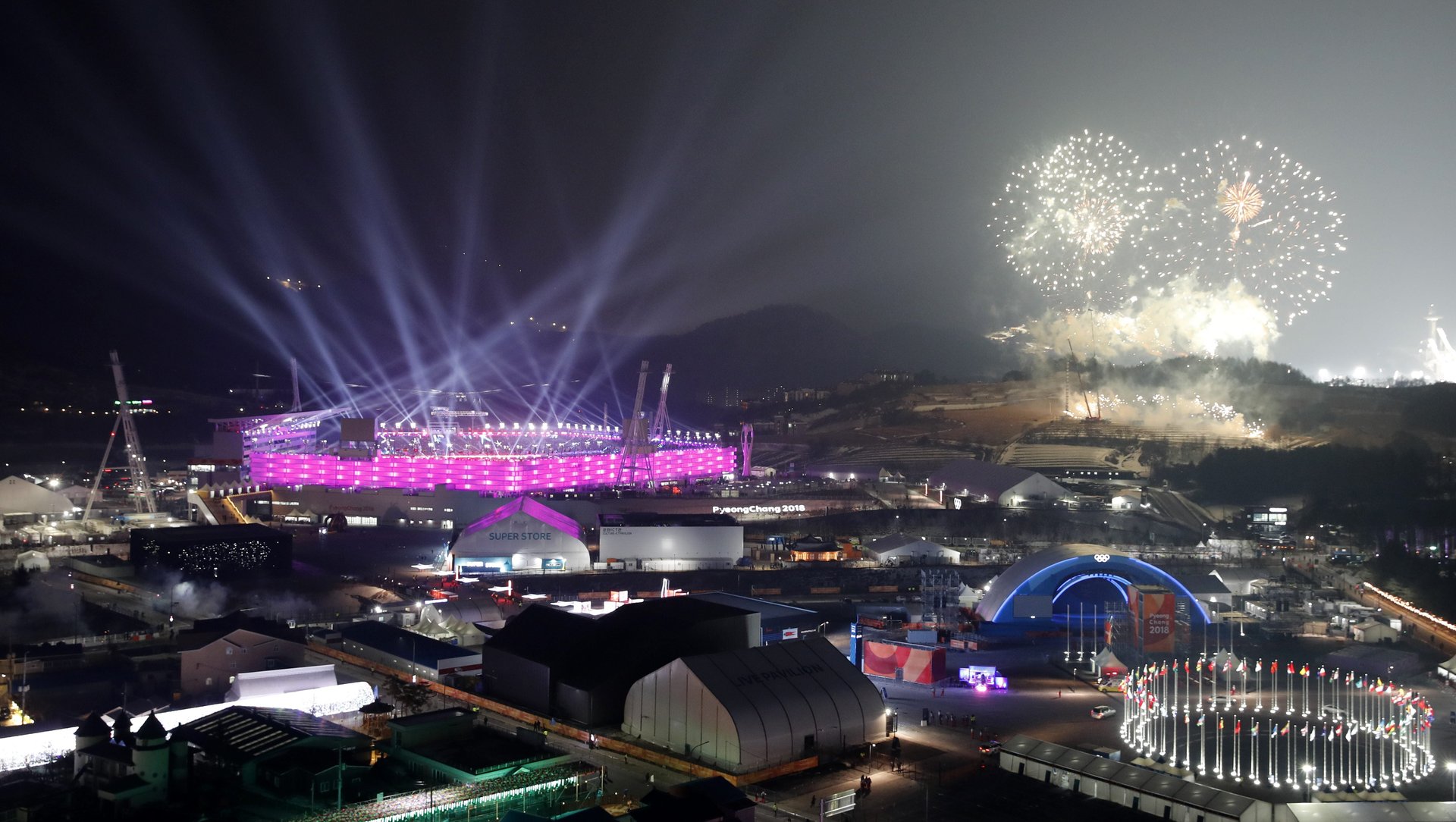Is there hope that the “Peace Games” can change the Korean peninsula—and the world?
The Winter Olympics are now officially underway in Pyeongchang, South Korea, after an opening ceremony marked by extreme chilliness—actual and metaphorical.


The Winter Olympics are now officially underway in Pyeongchang, South Korea, after an opening ceremony marked by extreme chilliness—actual and metaphorical.
These games are the biggest ever, with more than 2,900 athletes from 92 countries and territories (including six new ones, and unusually high participation from Africa). And they are certainly the most diplomatically fraught Olympics the world has seen in a while, coming after tense months of North Korean weapons tests and hawkish tweets from Donald Trump that set the world on edge.
Thursday night, the two Koreas closed out the opening parade of nations by marching under one flag. That display of unity comes after sustained overtures made by South Korea’s president Moon Jae-in. For months, the North seemed uninterested. It was only at the start of this year, and after many additional rounds of sanctions, that Kim Jong-un finally accepted the olive branch.
What can we hope for from these games—and after them?
The run-up to the event has been marked by the competing agendas of the nations whose athletes will be battling each other on the snow and ice.
There was the “state-promulgated sexism” of North Korea, whose delegation includes cheerleaders and a female orchestra that marched off a ship in matching winter coats. The color? Red, of course. Oh, and the North decided the eve of the games’ opening was the perfect time to hold a military parade.
There was US vice president Mike Pence’s warning that even though he was attending the opening ceremony, he wasn’t going to enjoy himself (or something like that). Instead, he’d be treating the occasion as work, a chance to send a message to North Korea that the time for “strategic patience” is over.
Meanwhile, in South Korea, there was the realization of the divide between an older generation who may still dream of reconciliation and younger people who are more cynical. Many in South Korea are uneasy over the unified team—and annoyed at the fact that some of their female Olympians will lose playing time to ice hockey players from across the DMZ.
It might seem unrealistic to imagine that the coming together of athletes from these nations at what some are calling the “Peace Games” can mean much, in the long run, for tensions in the region. And yet, last night’s opening ceremony was in itself a diplomatic achievement. Is it really all that foolish to pin some hope on moments of shared human transcendence offered by the twisting back flips of aerial acrobats, heart-stopping ski jumps, or the impossible perfection of a young figure skater’s triple axel?
This was published in the weekend edition of the Quartz Daily Brief, our news summary that’s tailored for morning delivery in Asia, Europe and Africa, or the Americas. Sign up for it here.